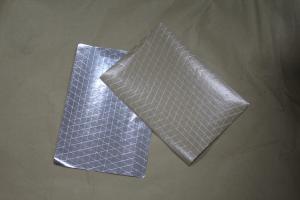Roofing insulation is a crucial aspect of home construction and renovation. It’s not just about keeping your home warm in winter and cool in summer; it’s also about saving on energy bills and making your home more environmentally friendly. But with so many options available, how do you choose the right material for your roofing insulation? Let’s dive in and explore the different types, their benefits, and how to make an informed decision.
The Importance of Roof Insulation
Before we get into the nitty-gritty of materials, it’s essential to understand why roof insulation is so important. It’s the first line of defense against heat loss and gain, which can significantly impact your home’s energy efficiency. A well-insulated roof can reduce your heating and cooling costs by up to 40%, making it a worthy investment in the long run.
Types of Roof Insulation Materials
Roof insulation comes in various forms, each with its unique properties and benefits. Let’s break them down:
Fiberglass
Fiberglass is a popular choice due to its affordability and ease of installation. It’s made from tiny glass fibers that are bonded together, providing excellent thermal resistance. However, it’s important to note that fiberglass can cause skin irritation for some people, so proper protective gear is necessary during installation.
Cellulose
Made from recycled paper products, cellulose insulation is an eco-friendly option. It has a high R-value, making it highly effective at insulating. It’s also fire-resistant and doesn’t settle over time, ensuring long-lasting performance. The downside is that it can absorb moisture if not properly installed, which can lead to mold growth.
Spray Foam
Spray foam insulation is a favorite among professionals for its ability to fill in gaps and crevices, providing an airtight seal. It has a high R-value and is excellent for moisture control. However, it can be more expensive than other options and requires professional installation.
Rigid Foam Board
Rigid foam boards, such as extruded polystyrene (XPS) or expanded polystyrene (EPS), offer high thermal resistance with low thermal conductivity. They are lightweight, easy to install, and resistant to moisture. The main drawback is their relatively high cost compared to other materials.
Mineral Wool
Mineral wool insulation is made from molten rock or slag, which is spun into fibers. It’s fire-resistant, has good sound absorption, and is resistant to mold and mildew. However, it can be more challenging to work with due to its brittle nature and the need for protective gear during installation.
Factors to Consider When Choosing Roof Insulation
Choosing the right roofing insulation material involves more than just looking at the R-value. Here are some factors to consider:
– Climate: The climate in your region plays a significant role in determining the type of insulation you need. For colder climates, materials with higher R-values are preferable, while in warmer climates, you might opt for materials that reflect heat.
– Cost: Budget is always a consideration. Fiberglass and cellulose are generally more affordable, while spray foam and rigid foam boards tend to be on the higher end of the price spectrum.
– Installation: Some materials are easier to install than others. Fiberglass and rigid foam boards can be DIY projects, while spray foam and mineral wool may require professional help.
– Environmental Impact: If you’re environmentally conscious, you might prefer materials like cellulose, which is made from recycled materials, or mineral wool, which is made from natural resources.
– Longevity and Maintenance: Consider how long the insulation will last and how much maintenance it will require. Some materials may settle over time, reducing their effectiveness, while others may need to be replaced more frequently due to wear and tear.
DIY or Professional Installation?
Deciding whether to go the DIY route or hire professionals depends on your comfort level with the task, the complexity of the project, and your budget. DIY can save you money, but if you’re not confident in your abilities, hiring professionals can ensure a proper installation and avoid potential issues down the line.
Maintenance and Care for Roof Insulation
Proper maintenance is key to ensuring the longevity of your roof insulation. Regular inspections can help identify any issues early on, such as moisture infiltration or settling. Depending on the material, you may need to add more insulation over time or replace damaged sections.
The Bottom Line
Choosing the right roofing insulation material is a personal decision that depends on your specific needs, budget, and preferences. By understanding the different types of materials, their benefits, and the factors that influence your choice, you can make an informed decision that will keep your home comfortable and energy-efficient for years to come.
Remember, a well-insulated home is not just a cozy sanctuary from the elements; it’s also a smart investment that pays off in energy savings and reduced environmental impact. So, take the time to explore your options and choose the best roofing insulation for your home.

